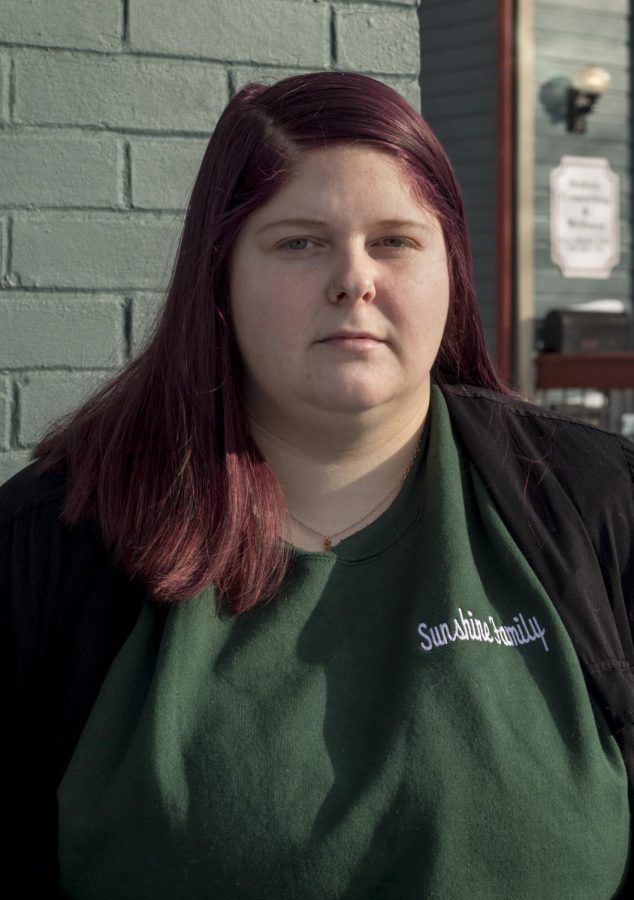From DC to KSU: government shutdown hits home (INCLUDE IN PACKAGE)
January 23, 2019
The nation’s ongoing government shutdown is causing major problems across the country — problems that span from D.C. all the way to the Kent campus.
KatiLynn Miller, a senior school health education major whose family qualifies for the Supplemental Nutrition Assistance Program, said her government benefits have been affected by the record-breaking shutdown.
“I just got my January balance deposited on Jan. 16, getting a second (for February) on Jan. 20, which will just sit there really, until February comes around for me to use it,” Miller said. “The problem though is, if we don’t get (SNAP benefits) for March, I have no spare amount anymore. If something happens then I’m out of luck.”
In order to save money for groceries and prepare for the shutdown’s indefinite future, Miller splits the bills for groceries with her roommate and plans to be even stricter with her spending than she was prior to the shutdown.
Prior to the shutdown, Miller decided to not work this semester so she could have extra time to spend on school. Now that she has the shutdown and her finances to think about, she’s worried.
“I feel like it adds an additional stress to my education that I shouldn’t have to bare,” she said. “I actually made a decision to not work this semester, to focus just on school, and I feel in the end, that decision will hurt me.”
According to a report done by CNBC, there are some 420,000 government employees who are required to work without pay during the shutdown.
Kevin McMullen, a Kent State alumnus and air traffic controller at Gerald R. Ford International Airport in Grand Rapids, Michigan, is one of them.
“We get paid every two weeks, and I didn’t receive a paycheck for the first time on Tuesday,” McMullen said. “There is also no paid leave available during the shutdown. If I had to take a sick day or if I had scheduled time off of a regular shift, the leave would be coded as furlough time, and therefore become leave without pay.”
McMullen, 26, has the added stress of providing for his wife Emily, who’s 12 weeks pregnant, and has to work full-time due to the shutdown for extra cash.
“I haven’t had to miss any bill payments yet, but the most stressful part is not knowing when it will reopen,” McMullen said. “My wife is pregnant, and she wants to go down to part-time at her job but not until we know that I will start getting paid again.”
Collette Johnson, Kent State alumna and administrative officer at the Ohio River Islands National Wildlife Refuge System in Pleasants County, West Virginia, has been out of work since the shutdown began on Dec. 22, 2018.
While out of work, she’s been coping mentally by keeping herself busy with volunteer work. Johnson, 38, is a volunteer firefighter with the Tuppers Plains Fire Department, where she also devotes some of her time serving as the fire department’s treasurer. Johnson said her volunteer work keeps her mind off of the current shutdown.
Financially, she’s had to not only cut corners, but take it a step further and apply for unemployment.
“The family and I usually go out to dinner once a week, so we’ve had to cut that out,” Johnson said. “I cancelled some subscriptions, like Amazon Prime and others. Just cutting down on any non-essential expense, and I’ve also applied for unemployment, but I’m still waiting for that. The process is quite slow.”
Due to the large amount of students affected by the shutdown, the university has started to help students. Helping students affected in the College of Communication and Information is AJ Leu, the CCI diversity director.
Since the start of the spring semester, Leu has seen a massive amount of students with financial issues linked to the shutdown. Students’ financial issues range from being unable to pay their tuition to being unable to purchase a required Adobe subscription.
“Some students can’t even pay their tuition because their checks aren’t coming through, which are supposed to pay that tuition,” Leu said. “Other students, have paid their tuition, everything seems fine when you pull them up in the system, they have a zero dollar balance, but they haven’t received their check or their payments aren’t getting their payments because they work for the federal government. And so, they can’t afford their books, or they can’t afford the Adobe subscription.”
Leu has been working with each affected student to help assess their financial situation and help them in any way that best benefits them. The college has created “emergency scholarships” for students affected by the government shutdown. Students were made aware of the emergency funds through an email sent by CCI and are encouraged to seek help from Leu should they need it.
Leu said the students coming to her for help have been determined and motivated to take care of the issues brought upon them by the shutdown.
“All the students I’ve met with are like, ‘Here’s what we gotta deal with,’” Leu said. “They’re being proactive and they’re trying to do everything they possibly can. I’m just one step on their list of trying to do everything they possibly can, and that’s the best situation to be in.”
Abby Miller is a features writer. Contact her at [email protected].













